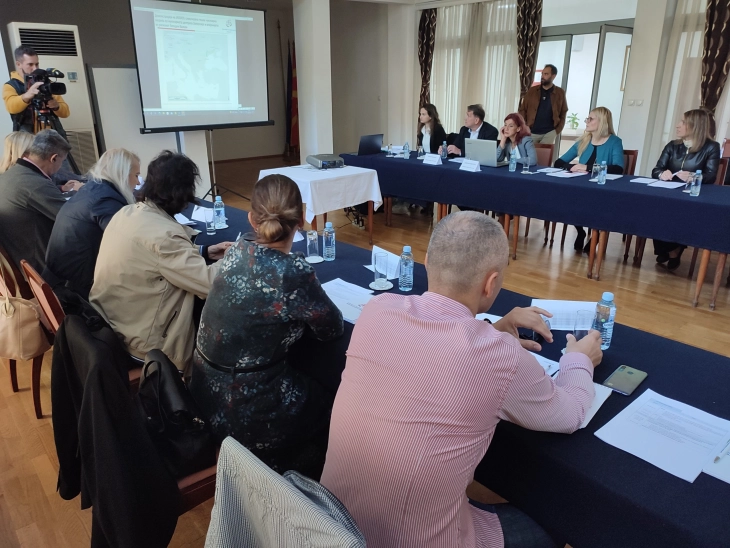North Macedonia to decide on protection from radiation and nuclear accidents with German software

Skopje, 1 November 2022 (MIA) - North Macedonia doesn't have to fear from possible consequences in the event of military operations in Ukraine's Zaporizhzhia nuclear power plant, it might only have the need for control of food and other products coming from Ukraine because they could be contaminated. This project will help the country do it if necessary and protect its citizens, said Bojan Tomikj, project manager for the implementation of the project on improving protection from radiation in North Macedonia.
The Directorate for Radiation Safety on Tuesday in Skopje organized a national exercise for tackling radiation and nuclear accidents aimed to determine the way North Macedonia could project what kind of radiation might be emitted from Ukraine and what might be the consequences.
Asked what the consequences might be, how dangerous they could be and what the people should know given reports that people in Denmark and Finland have been buying iodine, Tomikj said it is impossible a large-scale accident to happen prompting the people in North Macedonia to need iodine given the distance from the Ukrainian nuclear plant.
However, he noted, control of food and other products imported from Ukraine could be needed in case they are contaminated.
"The project we're working on will help determine that. In North Macedonia, we will be able to determine ourselves what might happen before doing what is necessary to protect the citizens in the country," Tomikj stated adding that JRODOS, a software developed in Germany and used in many European countries, will be introduced to that end.
The project, prepared by the European Commission, covers all countries in the Western Balkans, said the Director of the Radiation Safety Directorate, Alija Kamberoski.
"We are one of the first that will implement the project to demonstrate the readiness of our country and its relevant institutions that they can address incidents in the event of nuclear disasters," he said.
Asked whether the country has sufficient capacities, Kamberoski said there are qualified people, however there is also lack of staff since growing number of young people are leaving the country.
The country is safe from the risk of radiation as much as other European countries, said Stojanche Angelov, head of the Crisis Management Center.
The early warning system, however, he said, is out of order.
"The Crisis Management Center has sent an initiative for European funds so that we can renew the whole system. At this point, I can freely say that the citizens of the country will be notified on time in case of a threat from radiation," Angelov stated.
The citizens in North Macedonia should be at ease, insisted Goran Trajkov, consultant at the Radiation Safety Directorate. "The situation is being closely monitored and we've been receiving information also from the International Atomic Energy Agency as it closely follows the situation in Ukraine near the Zaporizhzhia nuclear power plant.
In North Macedonia, the Institute for Public Health is the authorized institution to monitor radioactivity nationwide through the monitoring stations and by measuring the concentration of radionuclides in water, soil, air, rain and food.







